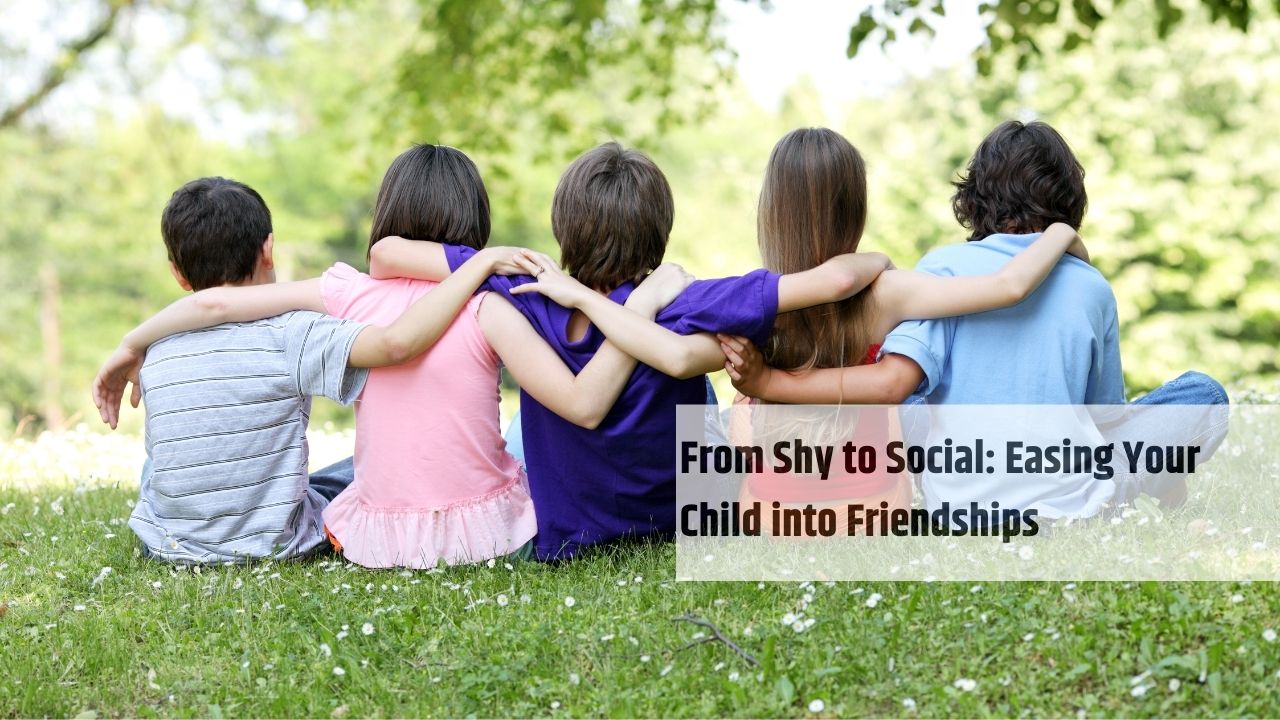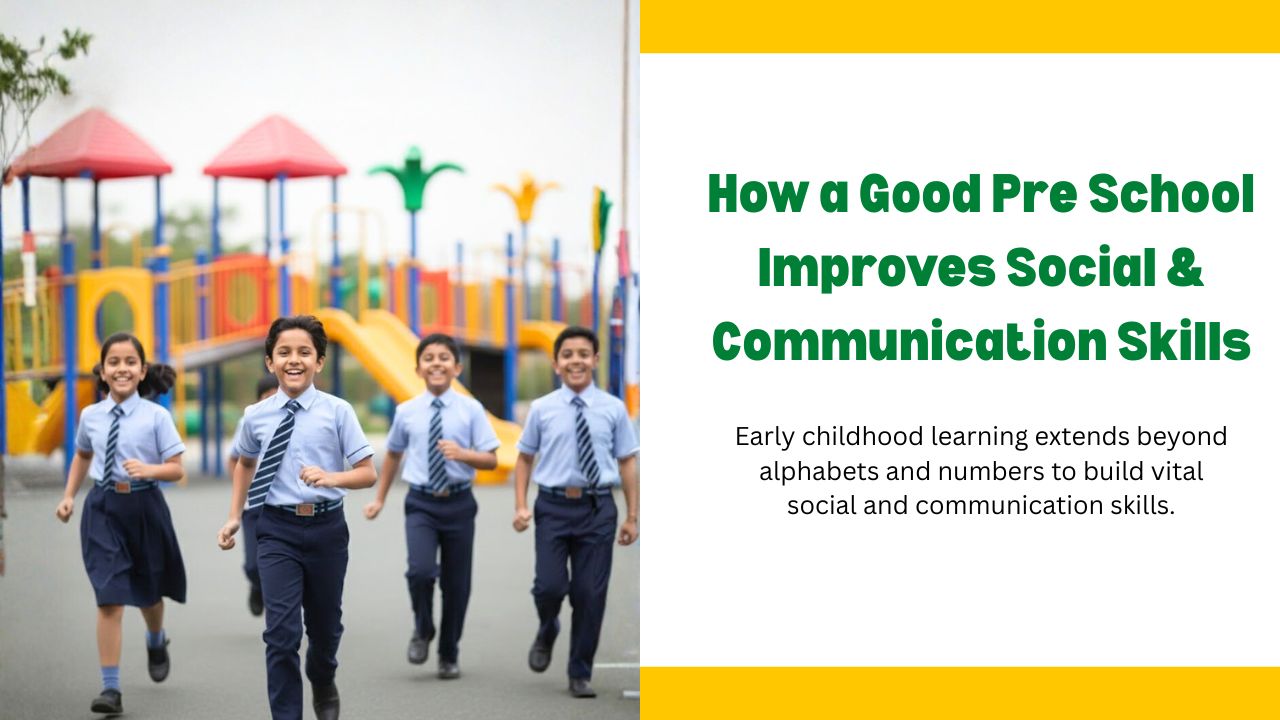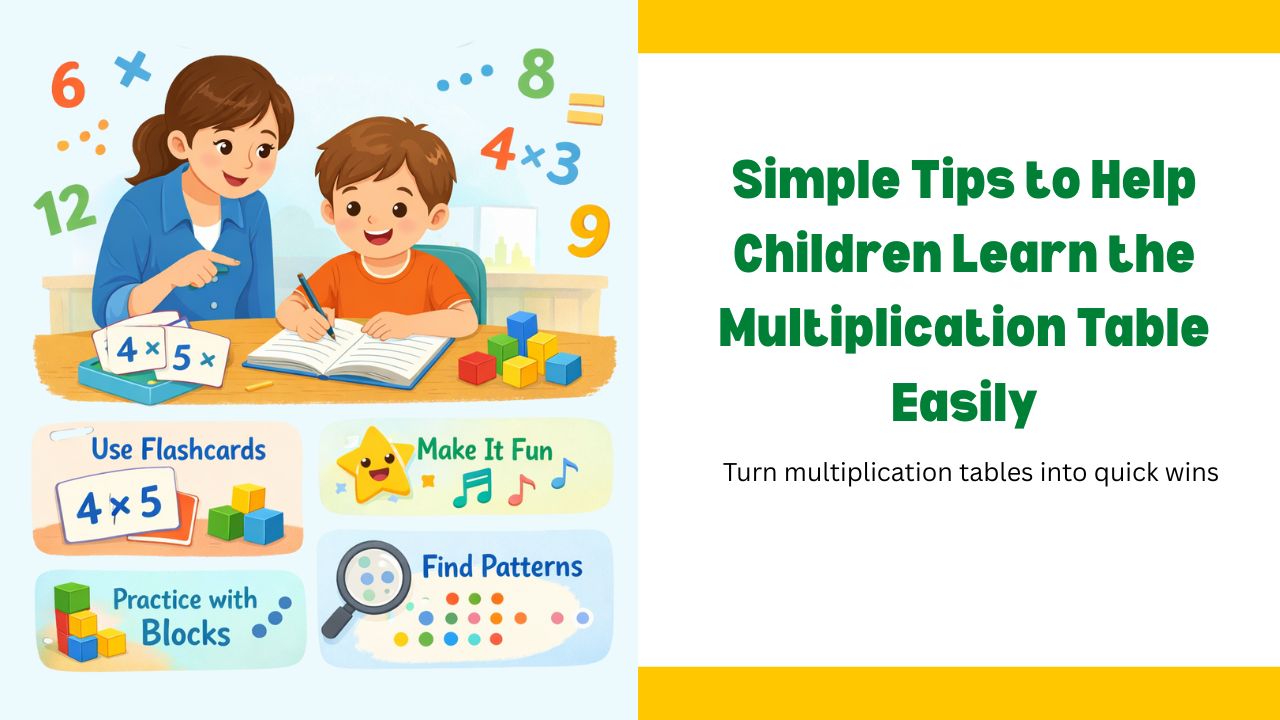Simple Steps to Help Your Child Go from Shy to Social with Confidence
It’s common for children to feel hesitant in social settings — especially in their early years. As parents, watching your child cling to your leg or avoid eye contact at birthday parties can stir up concern. But here’s the comforting truth: every child develops socially at their own pace.
Shyness is not a flaw — it’s a temperament trait. And with the right environment and encouragement, even the most reserved child can learn to connect, play, and thrive among peers.
In this blog, we’ll walk you through gentle, effective strategies to help your child transition from shy to social, one positive step at a time.
🧠 Understanding Shyness in Young Children
Shyness in preschoolers often looks like:
- Clinging to a caregiver in new settings
- Avoiding eye contact
- Hesitating to join group activities
- It takes longer to warm up to unfamiliar faces
This behavior is completely normal and often short-lived. Shyness can stem from a child’s natural temperament, previous social experiences, or even changes in environment.
The key is to understand, not label — and to respond with patience and empathy.
👀 Observe Without Pushing
Before encouraging interaction, take time to observe your child’s comfort zones.
- How do they behave at the park or preschool?
- Do they watch other children from a distance?
- Are they more open in quieter settings?
Gently support their curiosity without forcing interaction. Saying things like, “Would you like to sit near the other kids and watch?” gives them autonomy and reassurance.
🧑🤝🧑Start Small: Playdates and One-on-One Time
Big groups can overwhelm shy children. Start with one-on-one playdates in familiar environments.
- Invite a classmate for a short visit
- Keep the activity simple (puzzles, coloring, or storytelling)
- Stick to a routine — repetition helps build confidence
Over time, these small social moments lay the foundation for trust and friendships.
🗣️Model and Teach Social Skills
Children learn best by watching the adults around them. Model basic social behaviors like:
- Saying “hello” and “goodbye”
- Taking turns during a game
- Asking, “Can I play with you?”
Use books, puppets, or pretend play to teach empathy, kindness, and communication. And when your child makes an effort, praise the attempt, not just the result.
“I saw how you smiled back — that was very kind!” goes a long way in reinforcing positive behavior.
🏫 Choose the Right Preschool Environment
The preschool your child attends plays a crucial role in their social journey. Look for:
- Small class sizes that reduce overstimulation
- Warm, responsive teachers who guide with patience
- Structured group activities that foster interaction
🌱Create Opportunities for Peer Interaction
Outside of school, look for chances to encourage gentle peer play:
- Enroll in small-group activities like music, dance, or art
- Attend story hours at local libraries
- Explore parks where your child can observe or join other kids at play
The more positive exposure your child gets, the more confident and relaxed they become in social settings.
🧘 Build Confidence at Home
Social confidence often stems from self-confidence. Encourage independence at home by:
- Letting your child make simple choices (e.g., “Do you want the red or blue shirt?”)
- Teaching problem-solving during playtime
- Celebrating efforts like setting the table or helping with tasks
When children feel capable and heard, they’re more likely to engage with others courageously.
❤️ Be Patient and Encouraging
Every child’s journey is different. Avoid comparing your child to others, even siblings.
- Celebrate the little victories (“You waved at your friend today — that’s wonderful!”)
- Keep communication open and positive
- Resist the urge to label your child as “shy” — it can become a self-fulfilling identity
What your child needs most is reassurance, time, and your unwavering support.
📢 Conclusion
Helping a child move from shy to social isn’t about rushing or fixing — it’s about supporting and guiding.
Social skills take time, trust, and nurturing environments to grow. Whether your child takes baby steps or leaps forward, know that every smile, wave, or whispered hello is a meaningful milestone.
At Laureate High School, we believe every child blossoms best in a nurturing, inclusive environment.
Our early learning programs focus on social, emotional, and academic growth, helping your child transition from shy to socially confident in a loving space.
Follow Us On Instagram:- @laureatehighschool










